Kyoto's Maana Kiyomizu boutique hotel is the epitome of modern craftsmanship
Maana Homes’ latest boutique hotel with a twist opens in Kyoto, including suites, a café, and a shop specialising in modern Japanese craftsmanship
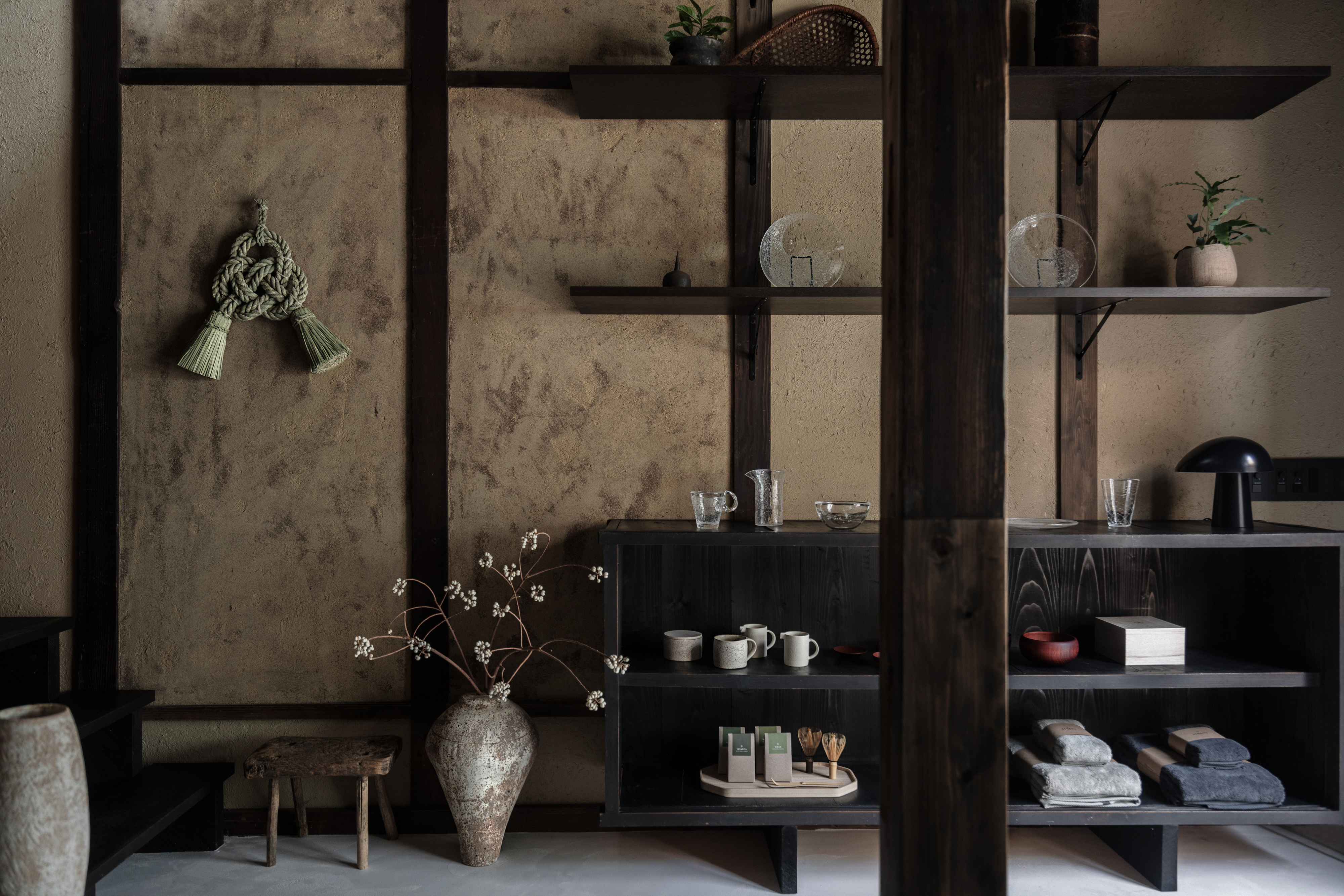
Mitsuru Wakabayashi - Photography
A contemporary sunken bathtub in soft sand shades with views across a 16th-century shrine; a clean-lined Danish sofa alongside a room of delicate washi paper panels; and an abstract French pendant light plus crafted screens of woven bamboo. Welcome to Maana Kiyomizu, home to a sleek Kyoto collision of past and future. The latest addition to the ancient city’s hospitality and creative scene, the boutique hotel spans a network of renovated century-old machiya townhouses on a quiet lane in the Higashiyama district.
Eating, sleeping and shopping at Maana Kiyomizu
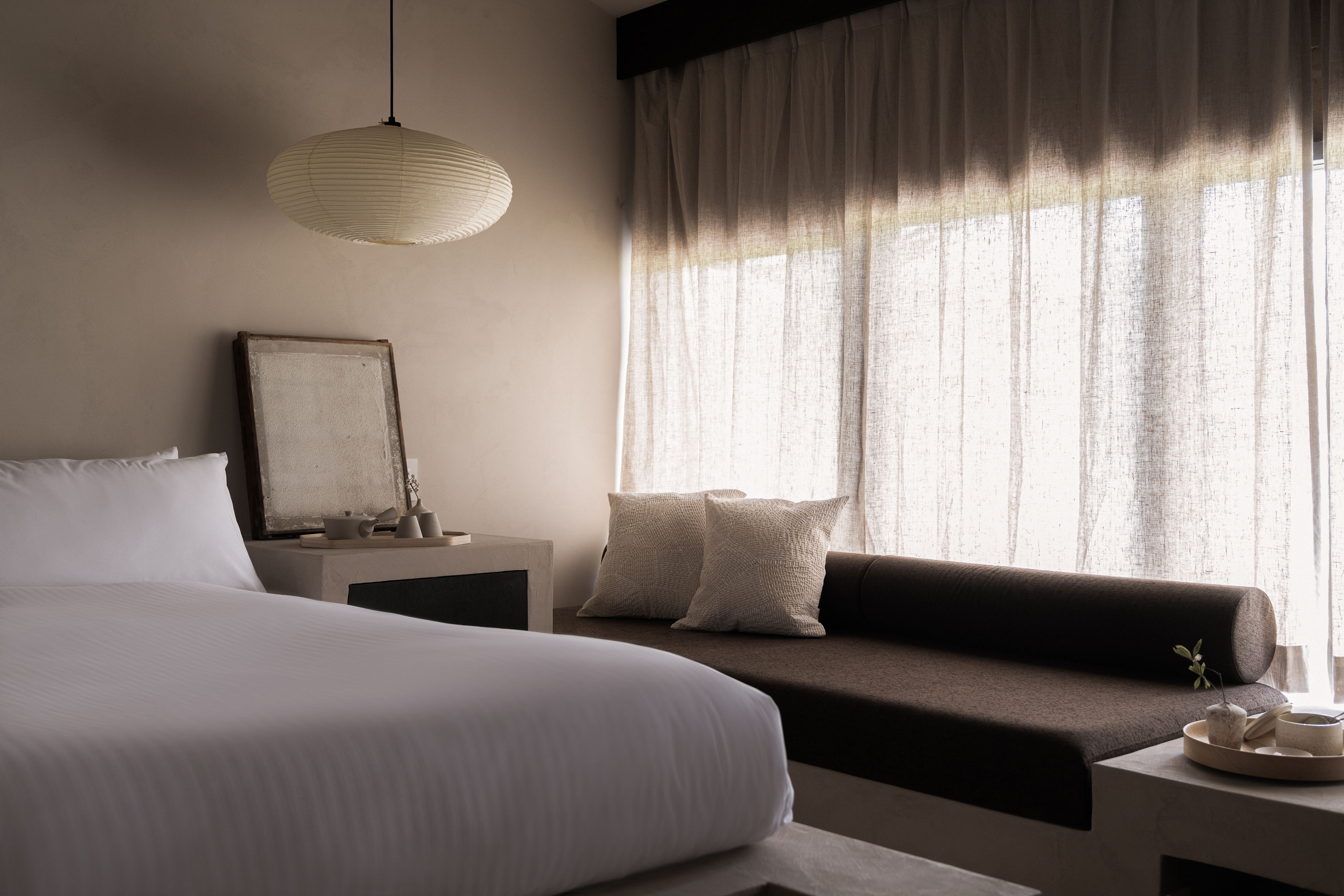
One of the suites at Maana Kiyomizu
The project ticks off a hat-trick of activities – eating, sleeping and shopping – with three suites for overnight stays; POJ Studio, a shop specialising in modern Japanese craftmanship and art; and Kissa Kishin, a stylish cafe serving up seasonal cuisine.
‘Our vision for this project is to bring the essence of ancient Kyoto into the modern world, through an intimate journey of food, crafts and stays,’ explains Hana Tsukamoto, co-founder and COO of Maana Homes, which produced the project and also runs two other machiya residences in Kyoto.

View from a suite
Co-founder Irene Chang adds: ‘We wanted to bring creative and vibrant energy into the neighbourhood community with an unexpected, refreshing approach to machiya. We hope to inspire a renewed perception towards them, and how they can be reimagined to fit into our modern lives.’
From the outside, Maana Kiyomizu – which opened its café and shop this month and will launch suites in November 2022 – blends in easily with a typical Kyoto streetscape of low-rise machiya. Stepping inside, however, the ambiance immediately tilts into a more contemporary dimension. Renovated by Kyoto architects Shigenori Uoya and Takeshi Ikei, the spaces are contemporary and minimalist, with smooth textures, soft curves and a light-toned palette that evokes a refreshing edge for machiya interiors.
The first suite has a calming backdrop of sand-toned walls, which encase the bed and flow into a sunken bathtub, alongside abstract paper lanterns and a wall of windows overlooking nearby Toyokuni Shrine. The second has a contemporary living space, with a serene ‘Petal’ pendant light by Elsa Foulon, Karimoku Case Study dining chairs and a nook room with a minimal arc entrance, wrapped in a warm orange shade by Copenhagen’s St Leo.
The bathroom – a signature feature for Maana Homes – has a bespoke Shigaraki ceramic bathtub handmade by artists in Shiga, beneath a delicate eggshell-like hanging pendant crafted by artist Gaku Nakane (whose work will feature in a POJ Studio exhibition from October).
Wallpaper* Newsletter
Receive our daily digest of inspiration, escapism and design stories from around the world direct to your inbox.
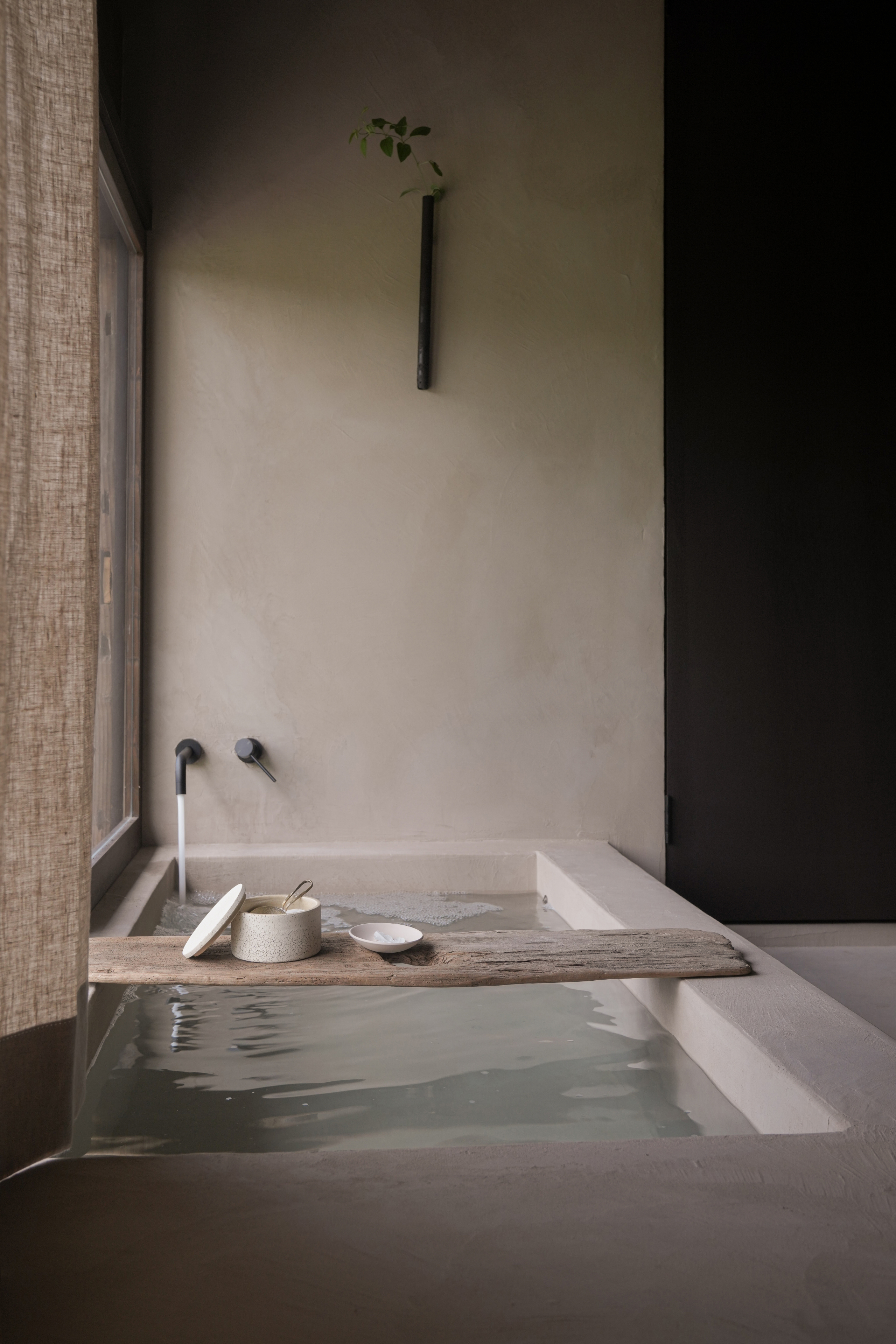
Bathroom
Upstairs is another scene of modern craftsmanship: the master bedroom is wrapped in lattice-like screens of woven bamboo known as takekomai – a structure that is normally hidden beneath traditional tsuchikabe (wattle and daub) plaster walls. A further guest room is serenely cocooned in panels of handmade washi paper by artist Wataru Hatano. The modern Zen-like atmosphere continues in the third suite, with its smooth, softly toned expanses of plaster, minimal seasonal blooms and antique wooden bench, balanced by the clean, modern lines of a sofa from Danish brand Menu.
Peppered throughout are POJ Studio details, from the clutches of abstract chochin lanterns to the amenity boxes, plus items such as tea sets, all available to buy next door. The shop itself sells a curated selection of its homeware and crafts, while also offering intimate workshops in activities such as kintsugi (repairing broken pottery with gold) and a concierge service specialising in access to artisans and artists.
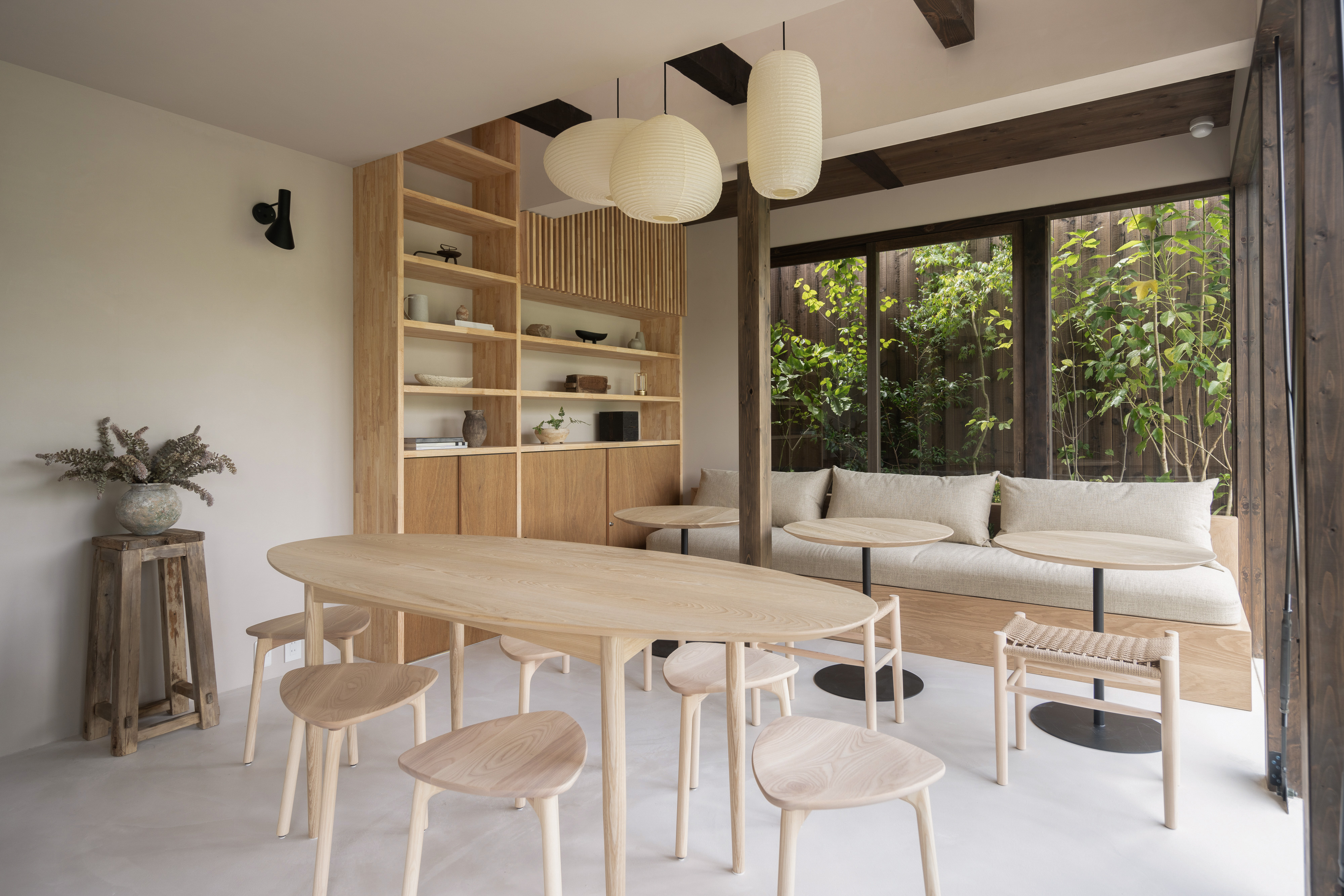
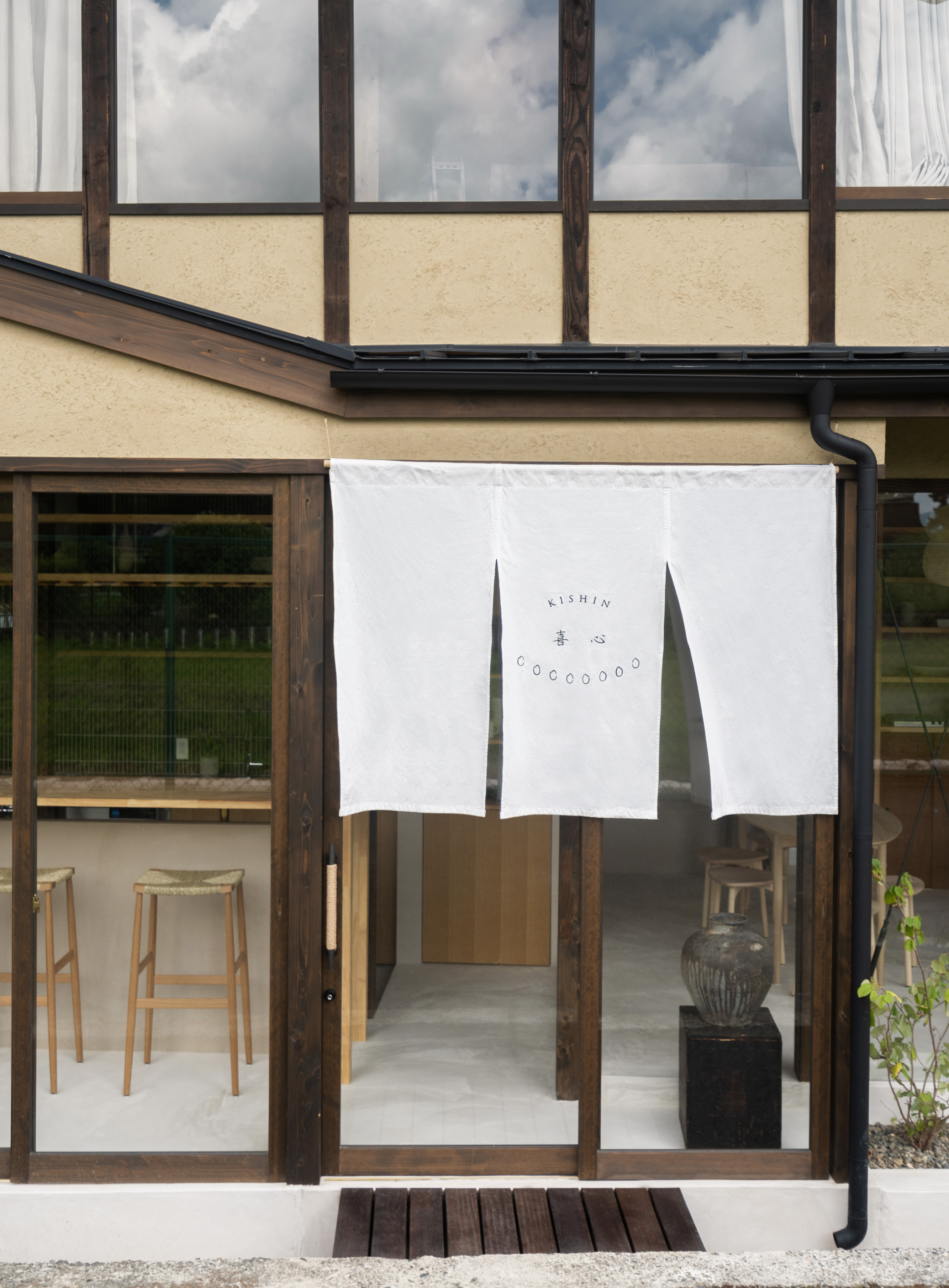
Interior and exterior of Kissa Kishin café
Kissa Kishin is the final ingredient. The little sister of a celebrated restaurant in Kamakura, a coastal town just outside Tokyo, the new Kyoto café has a clean-lined façade of glass walls and a white noren curtain. Inside, against a contemporary backdrop of bespoke Maana Homes-designed Aria furniture, paper lanterns and artworks by Akari Karugane, relaxed Zen-inspired cuisine is served up (the signature breakfasts are already a favourite locally).
‘Our design process has always been organic, not constrained by any style or trends,’ adds Tsukamoto. ‘For Maana Kiyomizu, we really aimed to push the boundaries and challenge typical perceptions of machiya. Until now, there hasn’t been such a risky, contemporary attempt at machiya renovations.’
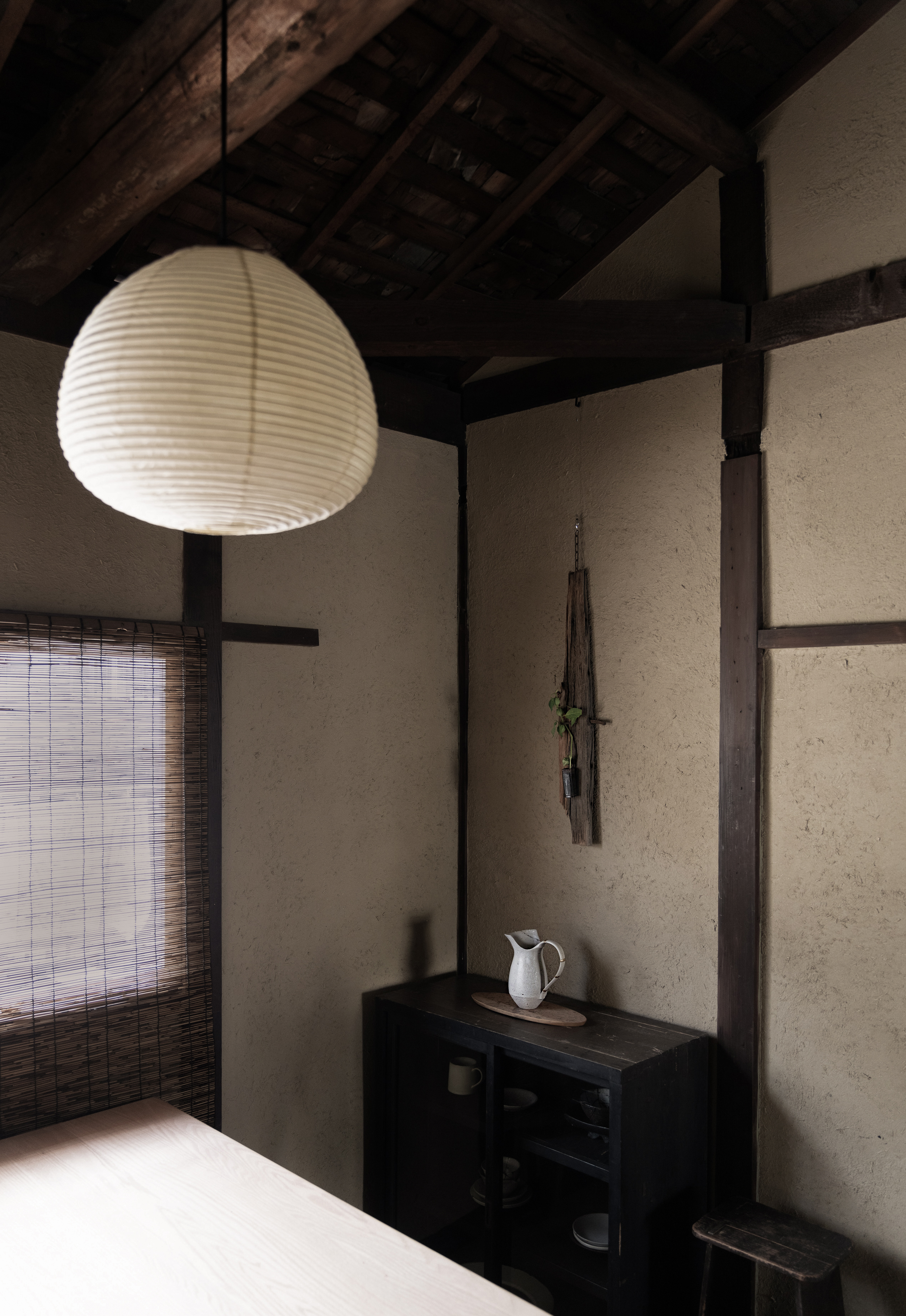
POJ Studio at Maana Kiyomizu
INFORMATION
Danielle Demetriou is a British writer and editor who moved from London to Japan in 2007. She writes about design, architecture and culture (for newspapers, magazines and books) and lives in an old machiya townhouse in Kyoto.
Instagram - @danielleinjapan
-
 Put these emerging artists on your radar
Put these emerging artists on your radarThis crop of six new talents is poised to shake up the art world. Get to know them now
By Tianna Williams
-
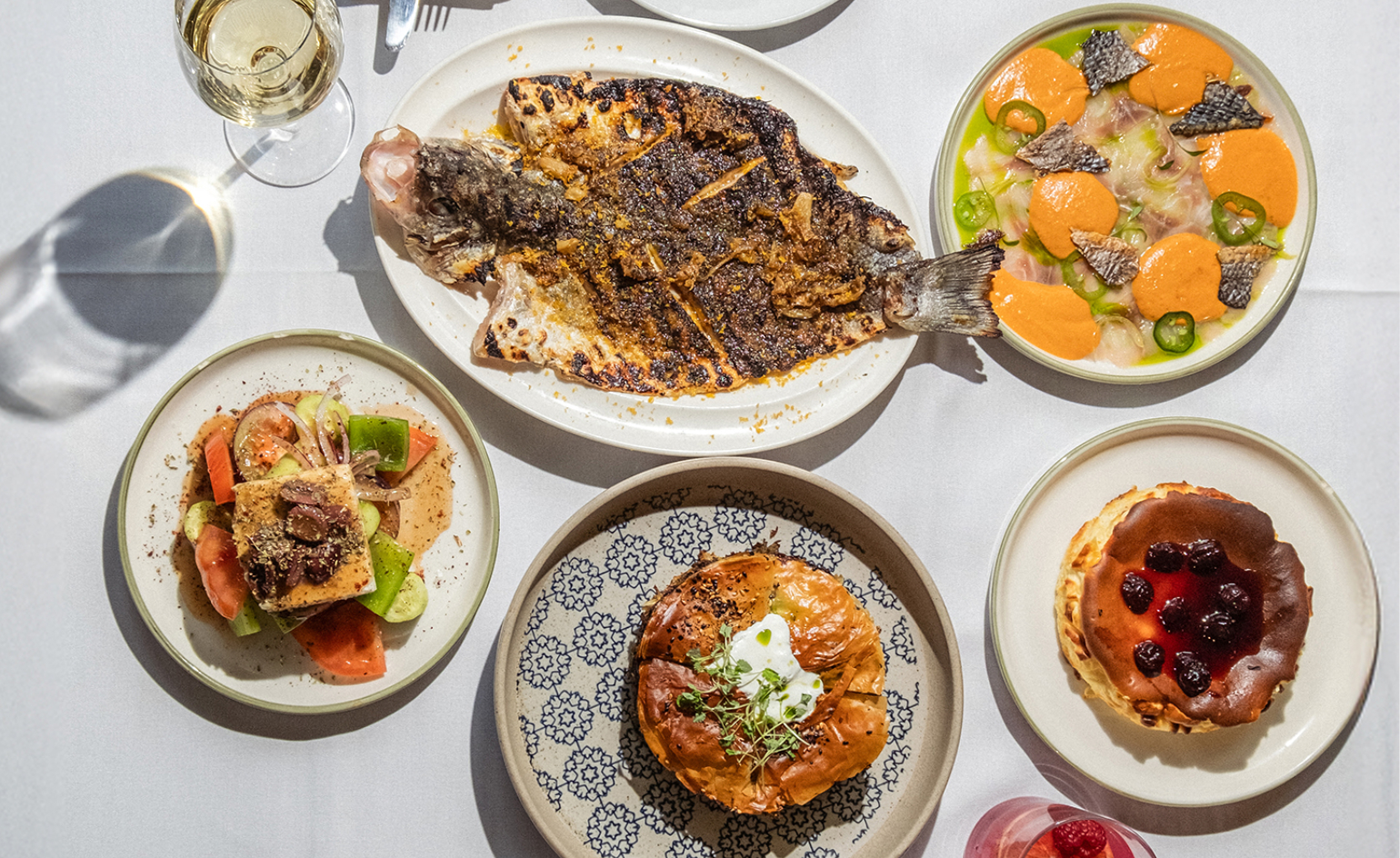 Dining at Pyrá feels like a Mediterranean kiss on both cheeks
Dining at Pyrá feels like a Mediterranean kiss on both cheeksDesigned by House of Dré, this Lonsdale Road addition dishes up an enticing fusion of Greek and Spanish cooking
By Sofia de la Cruz
-
 Creased, crumpled: S/S 2025 menswear is about clothes that have ‘lived a life’
Creased, crumpled: S/S 2025 menswear is about clothes that have ‘lived a life’The S/S 2025 menswear collections see designers embrace the creased and the crumpled, conjuring a mood of laidback languor that ran through the season – captured here by photographer Steve Harnacke and stylist Nicola Neri for Wallpaper*
By Jack Moss
-
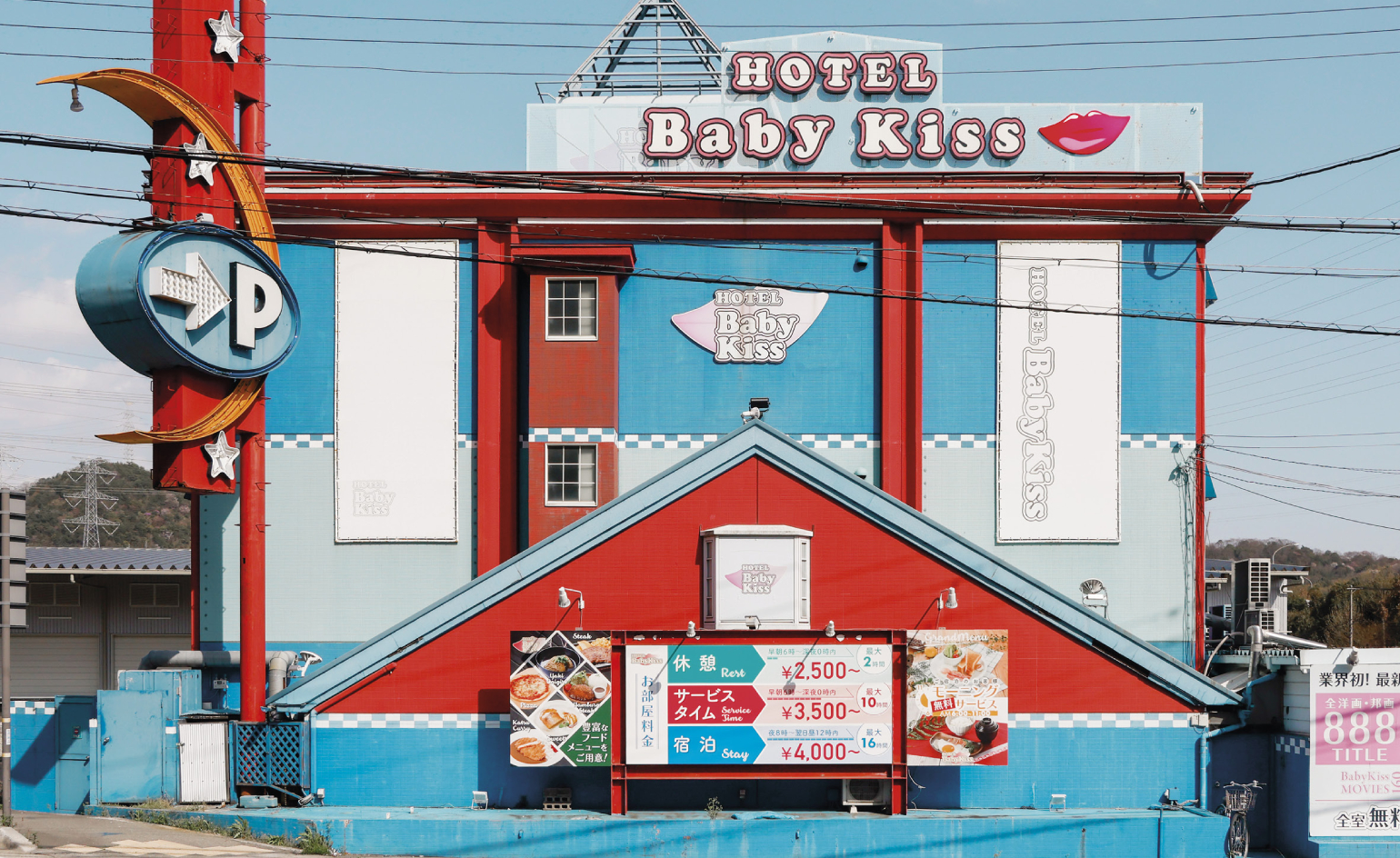 A new book captures the kitschy allure of Japanese ‘love hotels’
A new book captures the kitschy allure of Japanese ‘love hotels’For his latest project, French photographer François Prost documents the whimsical façades that characterise these erotic roadside venues.
By Sofia de la Cruz
-
 All aboard the world’s most luxurious train journeys
All aboard the world’s most luxurious train journeysStay on track with our pick of the most luxurious train journeys around the world, whether in 1920s-style opulence or contemporary chic
By Tianna Williams
-
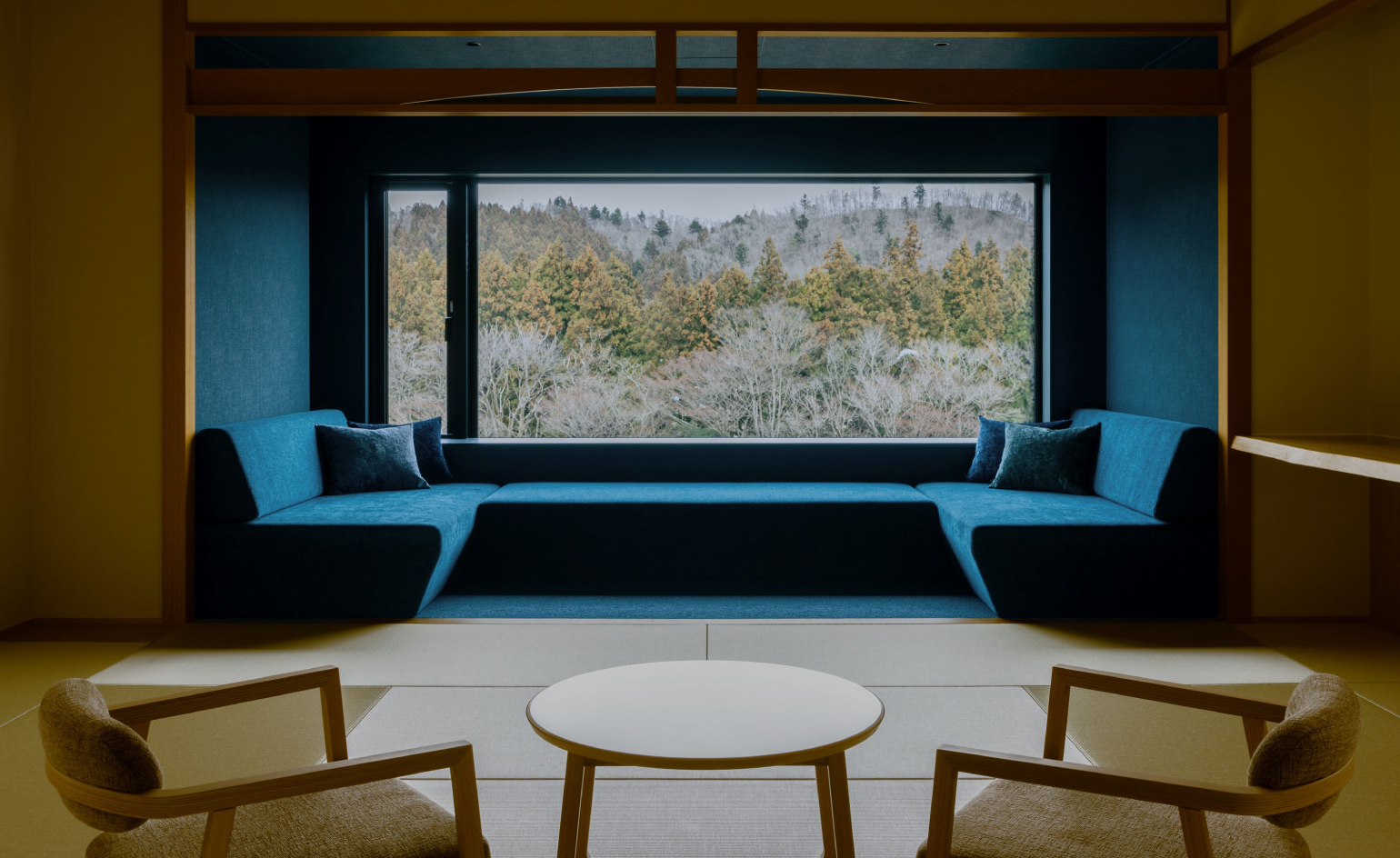 Wallpaper* checks in at Hoshino Resorts KAI Akiu: a soothing onsen hotel
Wallpaper* checks in at Hoshino Resorts KAI Akiu: a soothing onsen hotelIn Japan’s bucolic northeast, Hoshino Resorts KAI Akiu breathes new life into a sleepy hot spring village without betraying its ancient roots
By Eric Millman
-
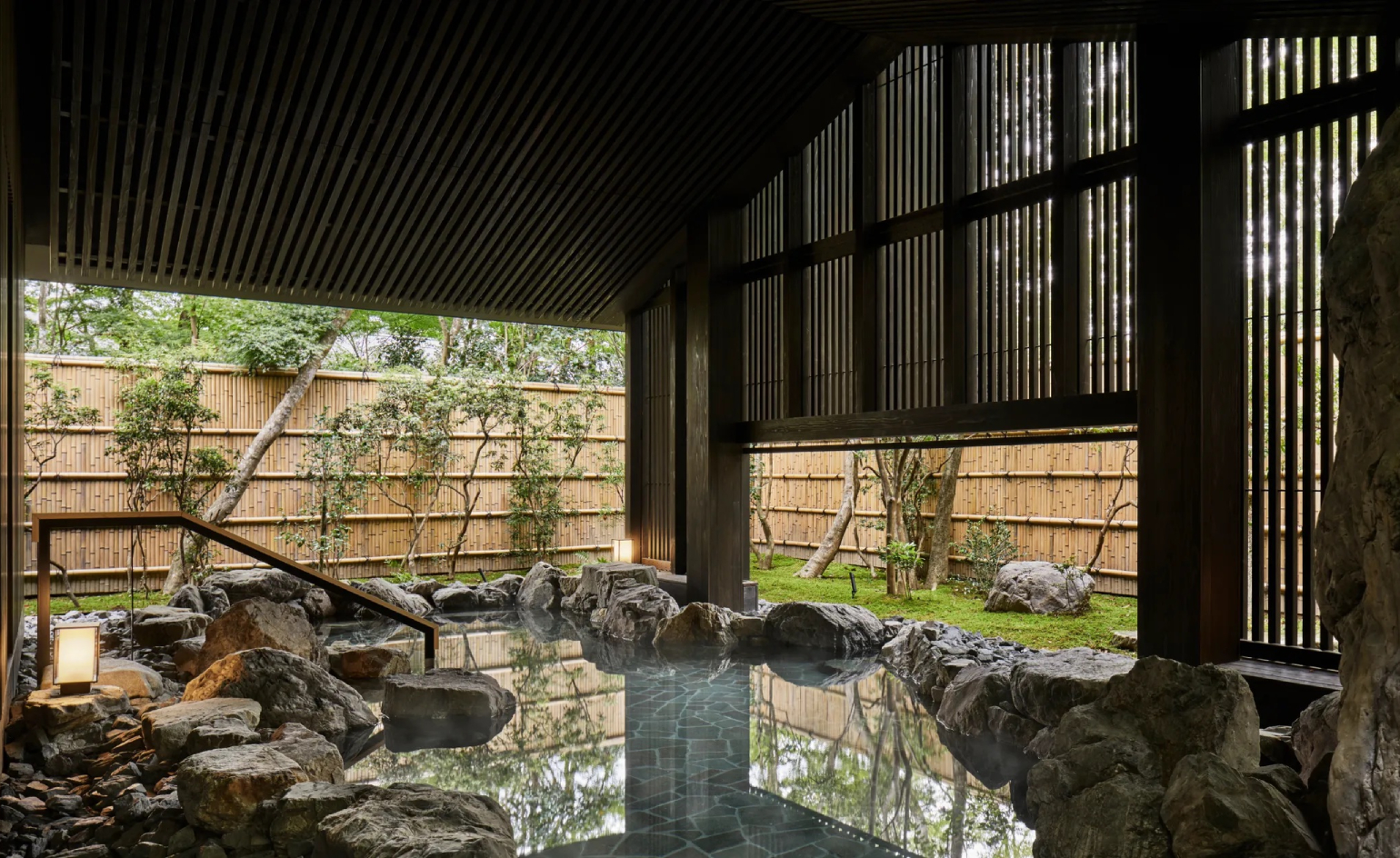 Shake off the winter chill at these design-led onsen hotels in Japan
Shake off the winter chill at these design-led onsen hotels in JapanWhether you’re heading to the mountains of Hokkaido or the alleys of Kyoto’s Gion district, these immaculately designed onsen hotels will keep the shivers at bay
By Jen Paolini
-
 The new hotels you’ll want to stay at in 2025
The new hotels you’ll want to stay at in 2025Where to stay in 2025? Let six of the most-read-about hotel openings of the past 12 months inspire your escape – from a tiny Tokyo bolthole to a Tanzanian safari retreat
By Sofia de la Cruz
-
 2025 getaways: where Wallpaper* editors will be travelling to this year
2025 getaways: where Wallpaper* editors will be travelling to this yearFrom the Japanese art islands of Naoshima and Teshima to the Malaysian tropical paradise of Langkawi, here’s where Wallpaper* editors plan to travel to in 2025
By Sofia de la Cruz
-
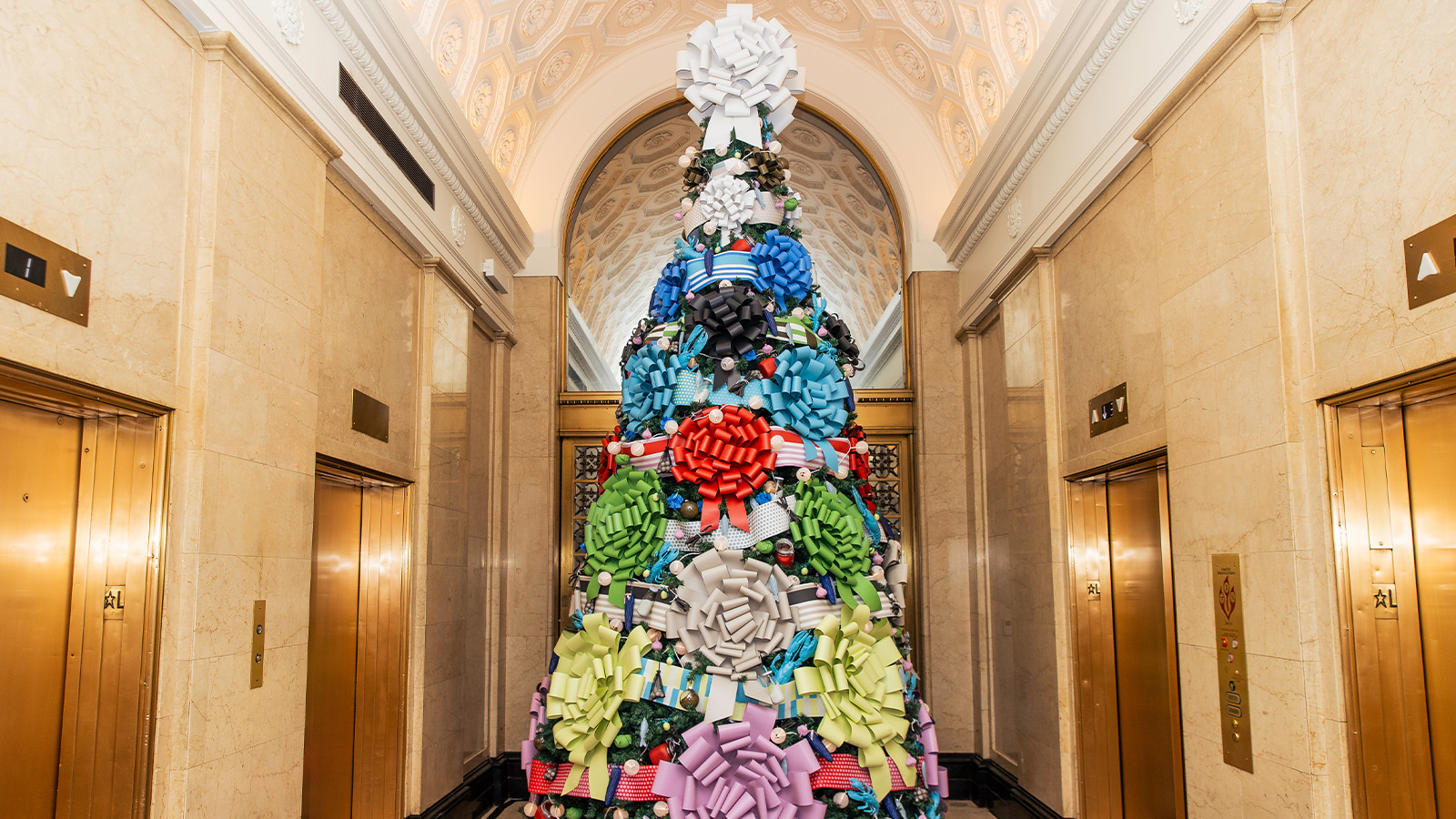 The most whimsical hotel Christmas trees around the world
The most whimsical hotel Christmas trees around the worldWe round up the best hotel Christmas tree collaborations of the year, from an abstract take in Madrid to a heritage-rooted installation in Amsterdam
By Tianna Williams
-
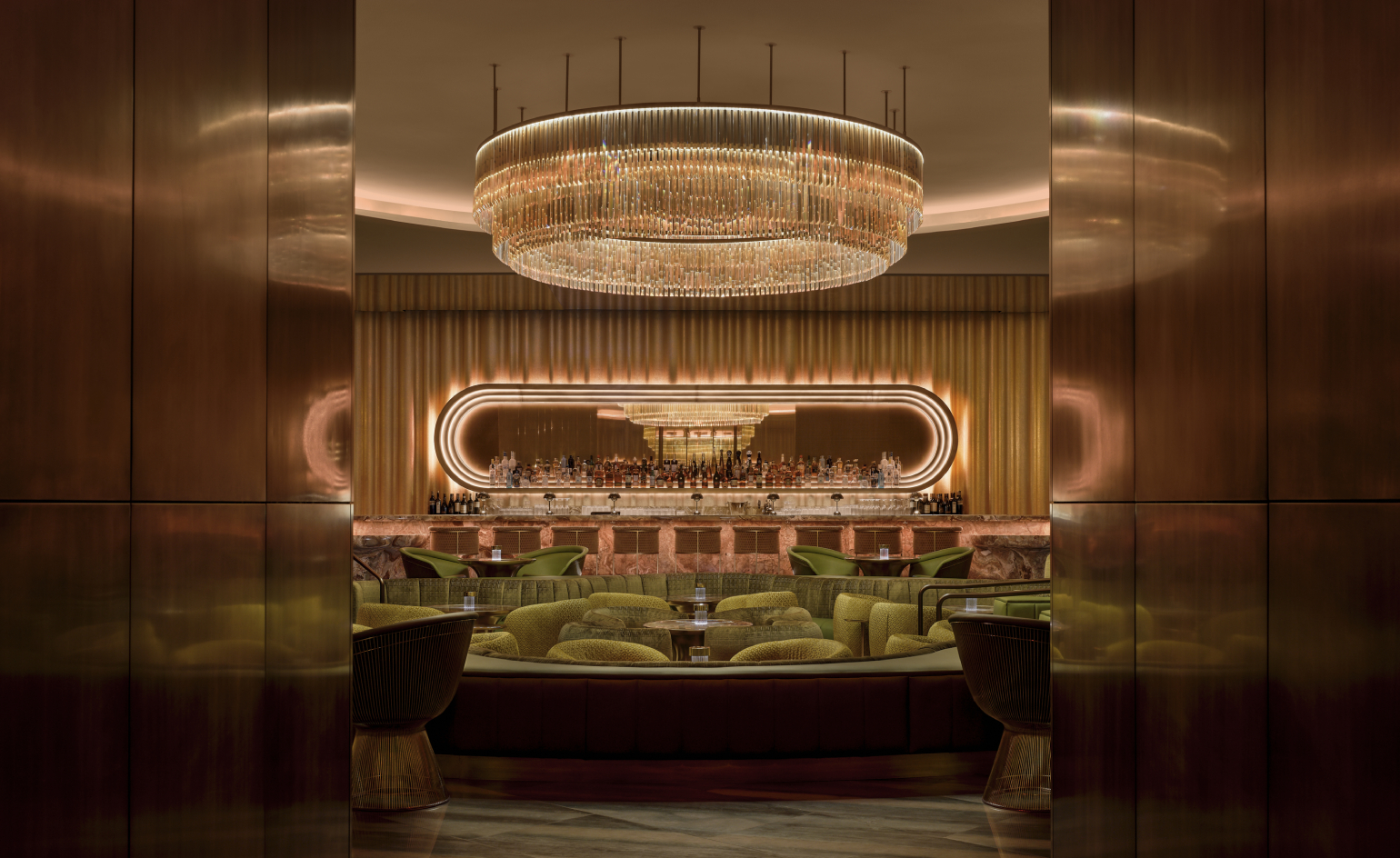 Six brilliant bars for your 2025 celebrations, hot off the Wallpaper* travel desk
Six brilliant bars for your 2025 celebrations, hot off the Wallpaper* travel deskWallpaper’s most-read bar reviews of the year can't be wrong: here’s inspiration for your festive and new year plans, from a swanky Las Vegas lounge to a minimalist London drinking den
By Sofia de la Cruz